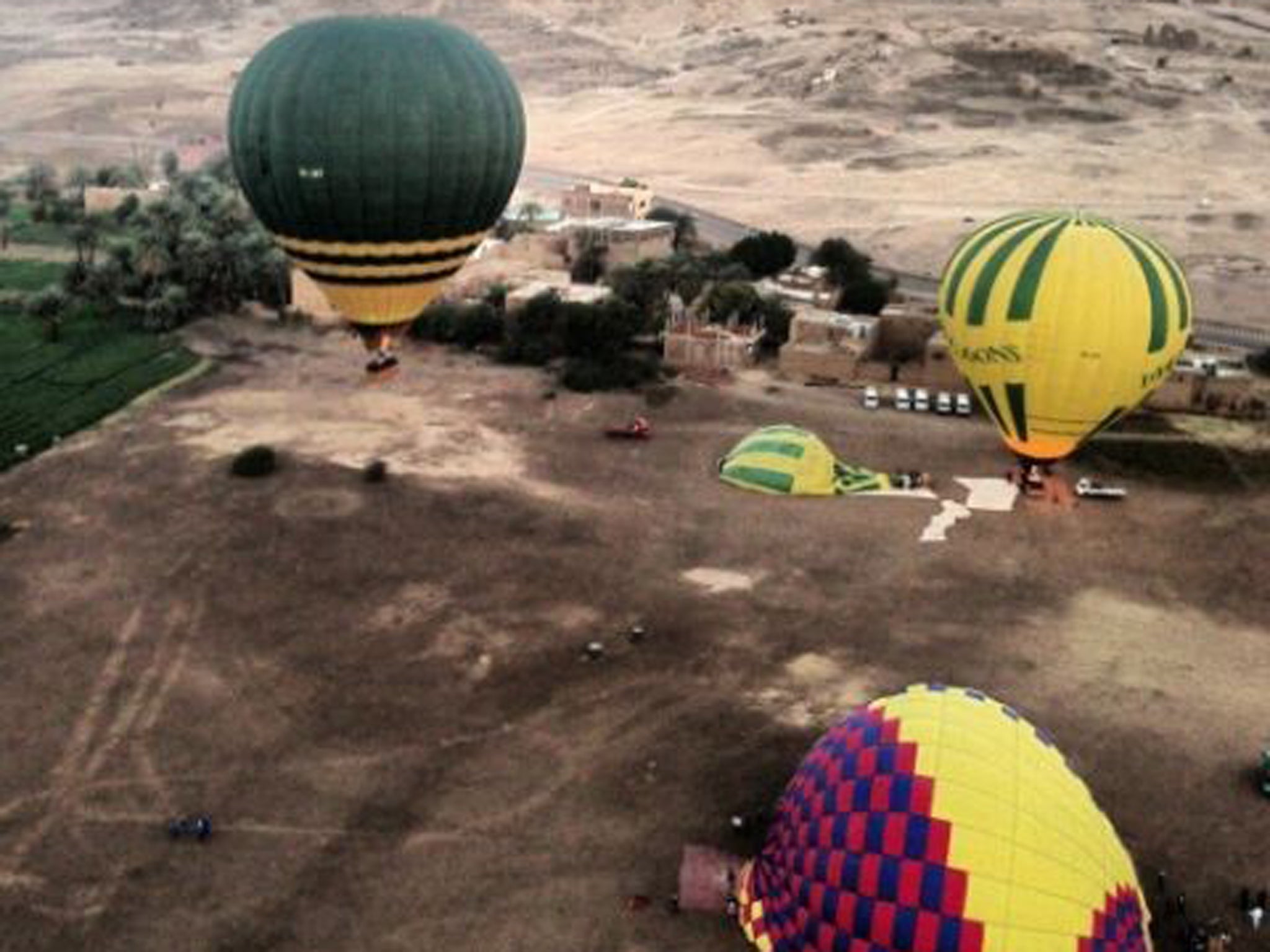Luxor hot air balloon crash: How tourism has changed in Egypt
As a result of a slump in tourism on the Nile, competition for visitors’ spending has become intense


A dawn hot-air balloon ride over the heartland of ancient Egypt is, for many people, the highlight of a visit to Luxor.
This morning, it became a tragedy that leaves many families bereft, their lives devastated.
The immediate focus in Luxor following the balloon accident will naturally be on repatriating the victims and trying to find out what caused the crash. Longer term, the tragedy will have wider effects.
Luxor, along with Aswan higher up the Nile, has been struggling to attract tourists in the numbers needed to provide enough employment. Hatshepsut’s Temple was the location for a terrorist massacre in 1997 in which more than 60 tourists died. Visitors figures slowly recovered, and by the end of the first decade of the 21st century the industry appeared healthy – with airlines adding flights, including the first direct link between the UK and Aswan. That new route closed down as soon as the uprising began in Egypt.
In the past two years since President Mubarak was deposed, visitor numbers to the Red Sea beach resorts have recovered to close to the figures in 2010. But tourism on the Nile has slumped dramatically, with many “cultural tourists” choosing to postpone trips to take in sights such as the temple at Karnak and the Valley of the Kings.
As a result, competition for visitors’ spending has become intense. Investigators will look at whether pressure to cut costs may have contributed in any way to the balloon crash, and to see if there is any evidence that the strict safety rules on balloon flights were broken.
It is a tribute to the Egyptian nation and its people that no tourists have been harmed over the past two years of political turmoil. This morning’s tragedy, though, could reinforce the growing impression that Egypt is a nation where the rule of law – and in particular the protection of tourists – is unravelling.
Join our commenting forum
Join thought-provoking conversations, follow other Independent readers and see their replies
Comments